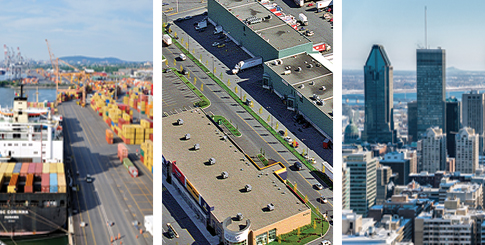La Belle Province (the Beautiful Province, aka Quebec) is an agricultural force to be reckoned with in Canada’s fresh produce pipeline. Despite a barrage of challenges, the region’s growers, wholesalers, and retailers continue to thrive. Key to their success is Montreal and its many resources.
To Move or Not to Move?
Quebec and its siblings Ontario and British Columbia account for more than 90 percent of Canada’s total cultivated vegetable acreage and 65 percent for fruit. In 2016, Quebec raked in more than $3 billion in crop receipts, according to Agriculture and Agri-Food Canada.
The province’s top produce commodities include apples, cranberries, blueberries, carrots, radishes, beets, leeks, and green onions. The bulk of these Quebec-grown fruits and vegetables move through la Place des Producteurs, Montreal’s long-standing terminal market. In addition to locally grown products, the market also handles imports from the United States, Mexico, Chile, Turkey, China, Spain, and other countries across the globe.
La Place des Producteurs, the largest fruit and vegetable wholesale market in Eastern Canada, is open all year and home to more than 150 tenants during peak season (May to October). Its prime location, however, remains a subject of heated discussion. As the market’s timeworn buildings continue to age, there is still much debate over whether it should rebuild or move to a more modern facility. The potential costs of either option concern tenants, who worry they will have to shoulder the financial burden.
For almost anyone in the fresh produce industry this is not a new subject, as the same conundrum faces merchants about 375 miles due south, at New York’s Hunts Point terminal market in the Bronx.
Location Matters
The Quebec Produce Growers Association (QPGA), which runs the market, is still in negotiations for a move. “We’re still looking for a site near the market, between five and ten kilometers away, and we continue our negotiations with the owners on a monetary agreement,” explains André Plante, general manager for the QPGA in Montreal.
Plante says moving to a new terminal market would offer tenants numerous advantages. “The benefits are that our platform would be operational year-round in a food safety environment,” he explains, adding that the market could also offer more services, such as warehousing, delivery, and transshipment. There is, however, a downside: “The disadvantage is that we will have to learn to work in more restricted spaces due to the cost of the building,” Plante admits.
As market tenants await a resolution, some have already relocated to more modern facilities. “We left the market about three years ago and bought our own place,” comments Gabriel Jacques, buyer and seller with Global M.J.L. Ltd. in Montreal. “We’re still near the market, but it’s the ideal spot for us.”



